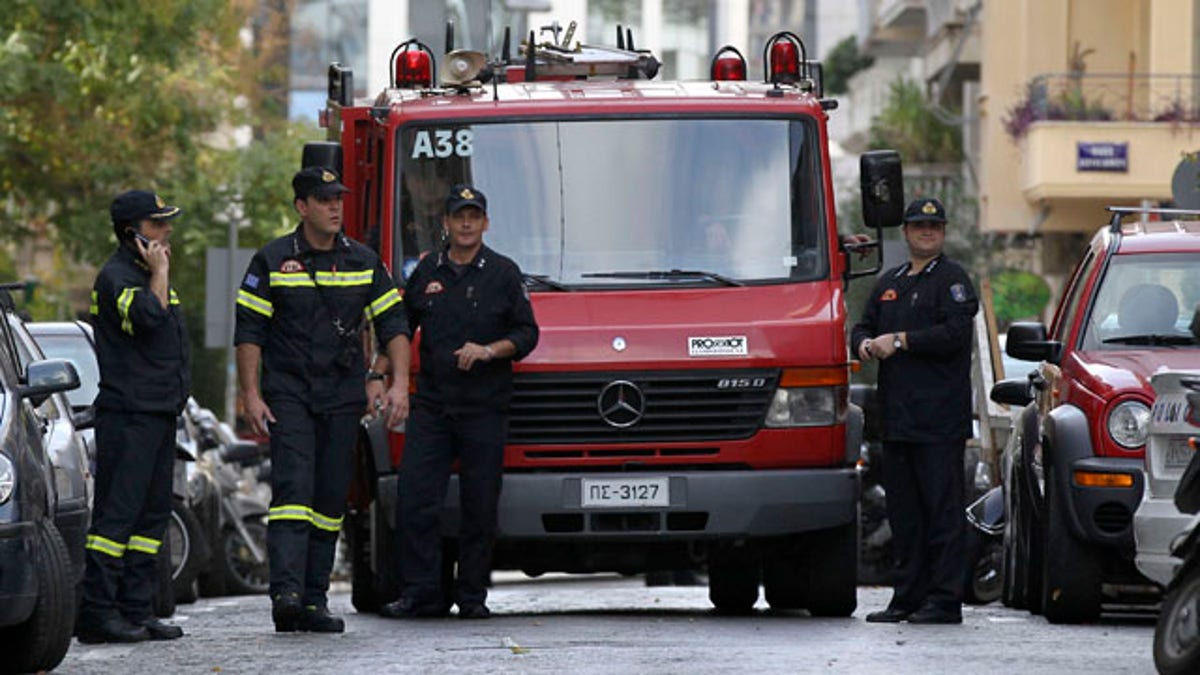
Nov. 9: Firefighters stand outside the Hungarian Embassy after bomb experts destroyed a suspicious package, in a controlled explosion, in the upmarket Athens district of Kolonaki. (AP)
ATHENS, Greece -- A suspicious package at the Hungarian Embassy in central Athens Tuesday contained documents and was not a mail bomb, police said, after experts destroyed the item in a controlled explosion.
Authorities sent a team of explosives experts to the embassy in the Kolonaki district of the capital after being notified of the package, following a spate of mail bombings last week targeting embassies and European leaders.
Two suspected members of a Greek militant group were arrested last week in connection with attacks involving 14 mail bombs, including one parcel that reached the office of German Chancellor Angela Merkel in Berlin and another addressed to Italian Premier Silvio Berlusconi that was found on a courier company plane that landed in Bologna. Greek authorities have said they believed there could have been a 15th bomb still in the mail.
Most of the bombs -- which police have said contained small amounts of explosives that would have been unlikely to kill -- had been sent to foreign embassies in Athens, while one was addressed to French President Nicolas Sarkozy.
Most were intercepted and destroyed in Athens. One exploded at a courier company, slightly injuring an employee, while two others detonated at the embassies of Switzerland and Russia, without causing any injuries.
Greek authorities suspended all international mail and courier deliveries for 48 hours last week in order to search for potential bombs. The ban ended at midnight last Thursday.
Greece has seen a spike in militant attacks -- including a deadly letter bombing earlier this year -- since riots in December 2008 triggered by a police shooting of a teenage boy.
Greek far-left extremists in the 1980s and 1990s killed more than 20 people. Although eradicated over the past decade, the most effective of these groups have inspired several small radical anarchist or nihilist groups violently opposed to capitalism and all forms of state authority.
